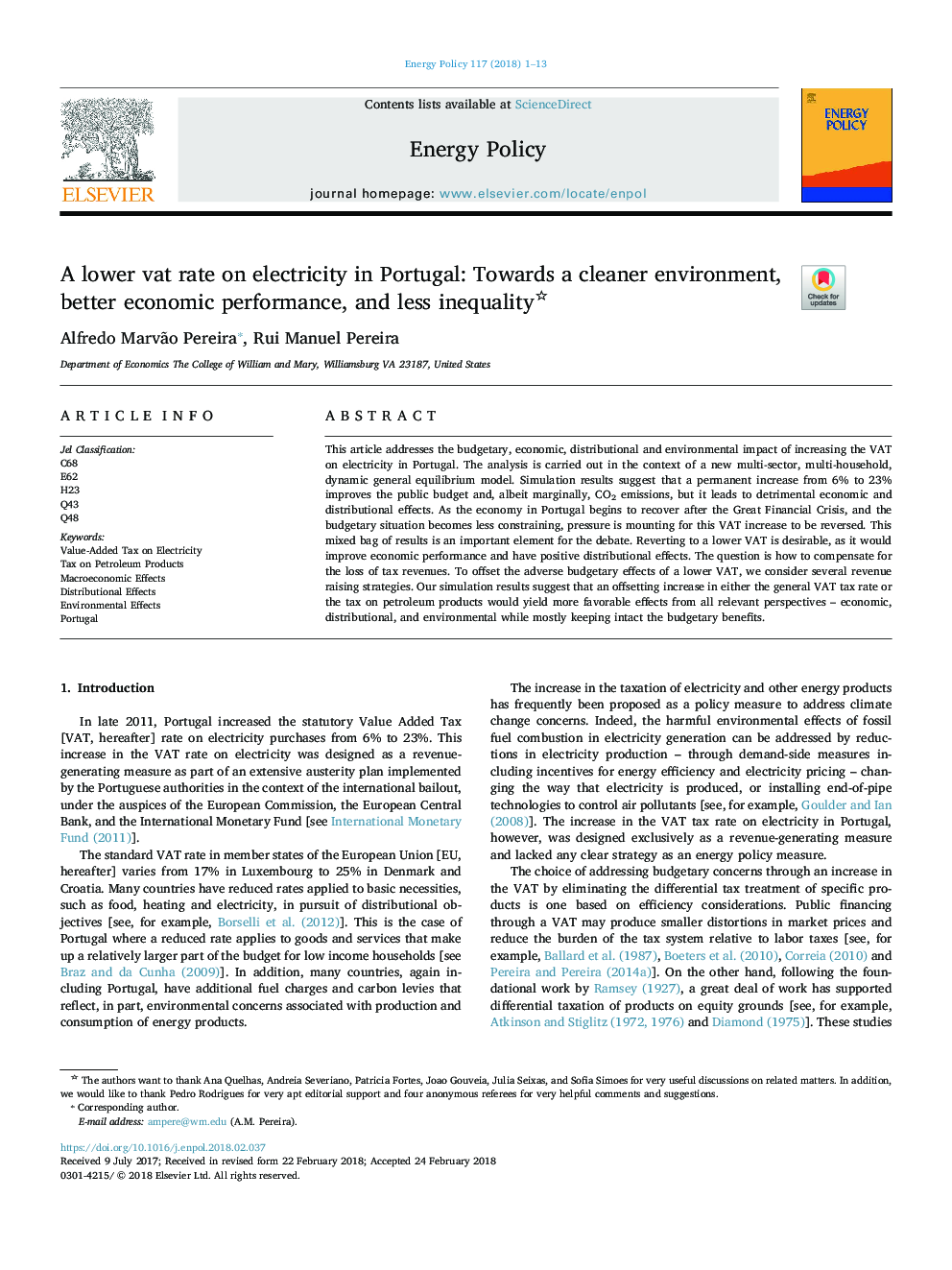| Article ID | Journal | Published Year | Pages | File Type |
|---|---|---|---|---|
| 7397409 | Energy Policy | 2018 | 13 Pages |
Abstract
This article addresses the budgetary, economic, distributional and environmental impact of increasing the VAT on electricity in Portugal. The analysis is carried out in the context of a new multi-sector, multi-household, dynamic general equilibrium model. Simulation results suggest that a permanent increase from 6% to 23% improves the public budget and, albeit marginally, CO2 emissions, but it leads to detrimental economic and distributional effects. As the economy in Portugal begins to recover after the Great Financial Crisis, and the budgetary situation becomes less constraining, pressure is mounting for this VAT increase to be reversed. This mixed bag of results is an important element for the debate. Reverting to a lower VAT is desirable, as it would improve economic performance and have positive distributional effects. The question is how to compensate for the loss of tax revenues. To offset the adverse budgetary effects of a lower VAT, we consider several revenue raising strategies. Our simulation results suggest that an offsetting increase in either the general VAT tax rate or the tax on petroleum products would yield more favorable effects from all relevant perspectives - economic, distributional, and environmental while mostly keeping intact the budgetary benefits.
Related Topics
Physical Sciences and Engineering
Energy
Energy Engineering and Power Technology
Authors
Alfredo Marvão Pereira, Rui Manuel Pereira,
